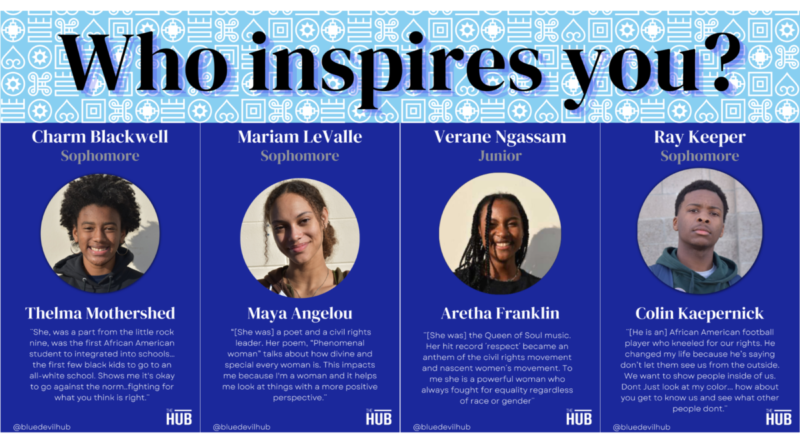OPINION: Our representation needs variety
Editorial By Tyrese Raney
Graphic By Xochitl Armièn
BlueDevilHUB.com Staff––
Black history lessons should be expanded to include the whole African diasporic history instead of limiting what’s widely taught to the trauma of African Americans. Mainstream Black history lessons consistently restrict the narratives about African Americans to topics like racism, slavery and segregation, and imply that it all ended in unity. In doing so, the dominant narrative glosses over the realities of the true darkness of what was and is done to African Americans and the magnificent greatness of the African Diaspora.
Conservatives and others who struggle with white fragility hold the opinion that talking about true Black history is inappropriate, and explicit while forcing an agenda. We see this with the fight against teaching critical race theory and the AP African American Studies course in public high schools.
American people seek to protect themselves and their children from the momentary discomfort of facing reality. This lack of accountability by Europeans and their descendants since chattel slavery and colonization allows this legacy of hatred and systemic oppression to continue controlling the narrative.
Not giving us our entire history makes it hard to connect what happened during the creation of American society, enslavement, Jim Crow, the civil rights movement and the injustice happening today in our systems and demand accountability. Learning what happened would bring forth a reality that would destroy the already tainted image of white America that those who wrote history books worked hard to build. This changing of the narrative to cover their tracks and avoid accountability is why issues of oppression, persecution, and inequity are still so prevalent in our society
Junior LaPrincia Mabins Hally feels that the Black history taught in schools has been oversimplified to what is palatable for white audiences.
“I think (the stories) are made by white people just to seem as if they weren’t as horrible (as they were) and like Black people have a chance. In my research and reading, I saw all the brutal things (that have been) done to black people. Honestly, I felt really angry … (I) wondered why they hid it.”
The emotions and comfort of white individuals are constantly prioritized over doing the important work needed to deconstruct the systems of white supremacy and rebuild toward unity. Teaching Black history in schools is a polarizing issue. Even within the classroom, there is much backlash when Black people are prioritized.
Most of Black History Month, for example, is spent focused on Martin Luther King Jr. and Rosa Parks because they are more relatable to the broader populace.
However, repeating these stories takes up opportunities to include more historical figures taught during the month. Adding more stories can help Black individuals connect with their culture and keep society from repeating the same mistakes.
Black History Month needs to include the broad African diaspora instead of the little narrative of African American history. If anyone wants to ally with Black people they can put resistance aside and learn the history. Americans need the opportunity to learn and this cannot be done without proper representation in schools.




